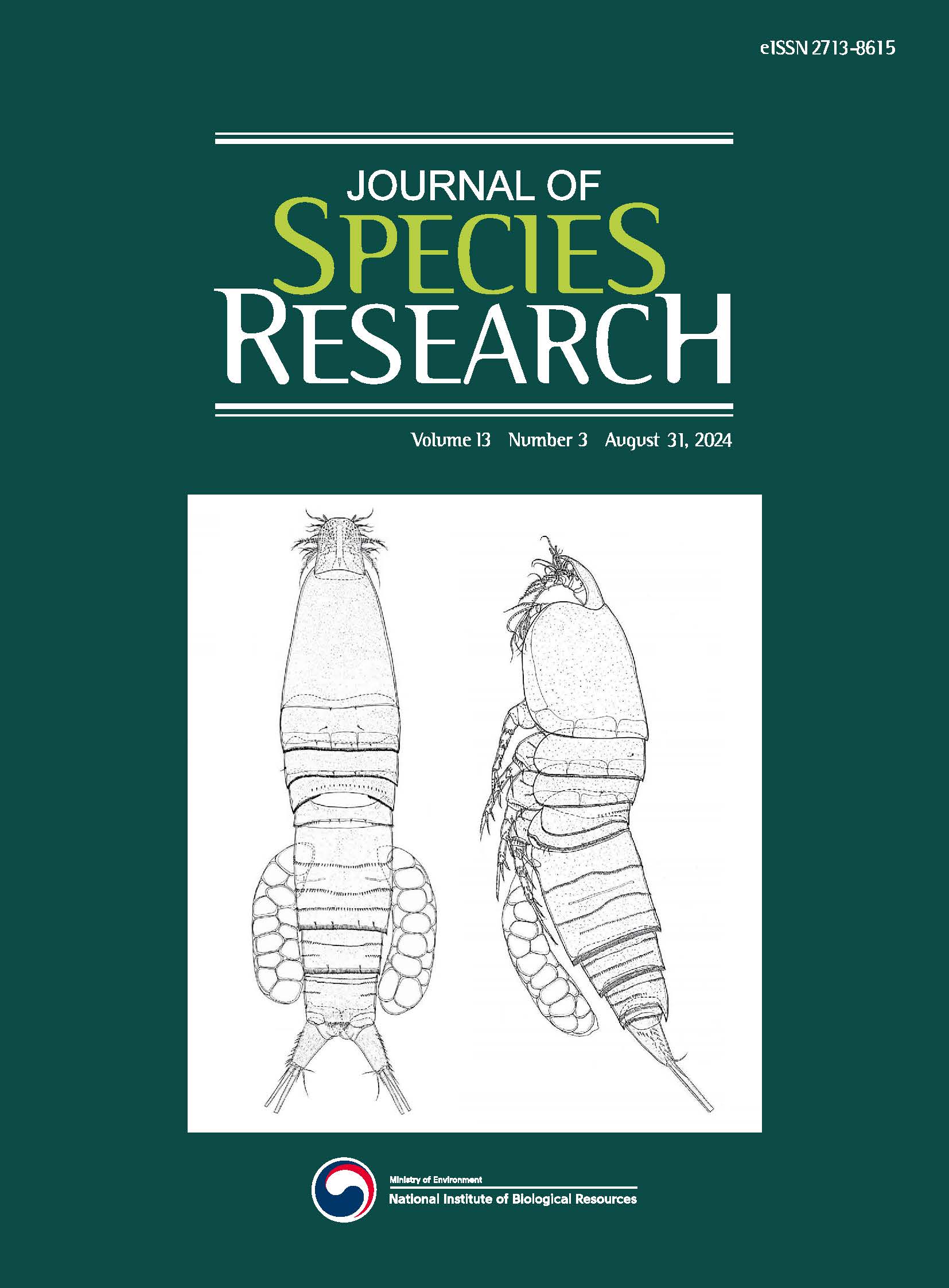- ENGLISH
- E-ISSN2713-8615
- KCI
Ontogenetic variation in Chironomus flaviplumus (Diptera, Chironomidae) larvae
Jae-won Park (2Department of Ocean Integrated Science, Chonnam National University, Yeosu 59626, Republic of Korea)
곽인실 (전남대학교 수산과학연구소)
Abstract
Chironomus is a large genus of Diptera comprising about 400 species and occurs worldwide except for Antarctica. The strong morphological cross-taxon similarity of chironomid larvae renders identification at the species level difficult. Here, we analyzed the morphology of larvae of Chironomus flaviplumus, an easily cultured species employed as a bioindicator in polluted environments, to determine identifying morphological characteristics at the first through fourth instar. Observed differences appearing at each instar include the presence or absence of setae on the body and tubules on the 10th and 11th body segment, the number of seta interna in the mandible, and the presence or absence of ring organs in the antennae. Some specific morphological characteristics did not change after hatching. Our findings provide a reliable method for identifying C. flaviplumus larvae.
- keywords
- Chironomidae, Chironomus, larvae, morphology, ontogeny
- 다운로드 수
- 조회수
- 0KCI 피인용수
- 0WOS 피인용수


